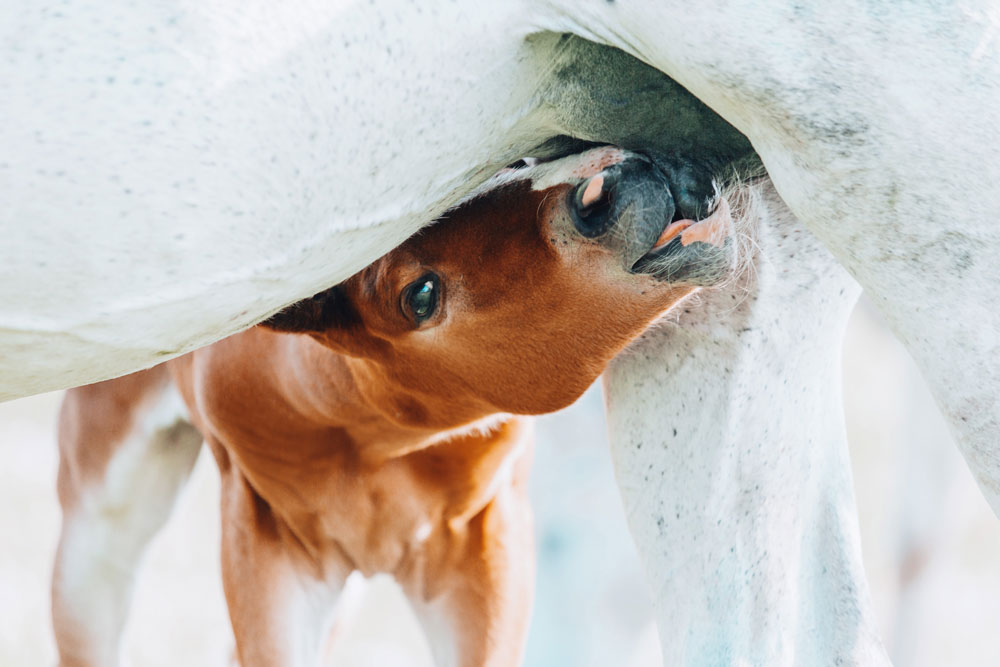In Monday Myths we debunk common misconceptions about a range of topics regarding equine digestive health and care. These are real statements made by real horse people. Have a question or topic you would like to see covered? Submit your idea here.
Statement: My horse is losing weight, so he needs more grain.
When we think about our dream horses, we all picture a plump, shiny, muscled, dappled equine in whatever coat color we prefer. In reality, the ideal equine weight can be difficult to achieve – especially when conventional wisdom runs afoul of healthy equine digestion.
Today’s myth debunks the idea that if a horse needs to gain weight, all we need to do is increase its concentrated feed. For many barn managers or owners, the appearance of even slightly jutting withers, quarters, or ribs are cause to increase the amount of concentrates a horse gets in its diet. We’ve even known barns that feed more grain in winter than in summer to make up for the lack of pasture grass and to combat winter weight loss.
The problem with this approach is that the equine digestive system is not designed to easily digest high-starch feeds – so instead of helping a horse to gain weight, increasing a grain ration may actually worsen the problem.
Many of the concentrates on the market today are high in starch and made primarily of simple carbohydrates. Even feeds touted as “low starch” may still include more than what a horse’s system can easily handle. The equine hindgut is especially at risk, and here’s a glimpse at why:
- It’s the stomach’s responsibility to begin breaking down food for absorption, which for everything except fiber (i.e., the structural carbohydrates in forage) should happen in the small intestine. This entire process takes just a few hours.
- Large grain meals fed just 2-3 times a day often move too quickly through the stomach and small intestine to be completely broken down and absorbed.
- Undigested starch that then reaches the hindgut interferes with the beneficial microbes there that are responsible for breaking down fiber. When starch is fermented by the bacteria in the hindgut, it produces a higher proportion of lactic acid. This increase in acidity is known as lowering the pH level.
- Increased acidity in the hindgut, which causes beneficial microbes to die off and release toxins, is a precursor to all kinds of problems from a mild digestive imbalance, to hindgut acidosis, ulcers, colic, and laminitis.
The larger the amount of concentrates given in one feeding, the greater the risk to the horse. First, it’s counter-productive because starches often cannot be completely absorbed in the small intestine quickly enough – so you aren’t getting the benefit of the added calories anyway. The damage to the normal structure and function of the equine GI tract won’t do your horse’s weight any favors. And to top it off, the potential for lowering the pH of the hindgut may negatively impact overall health, energy levels, and performance.
The best ways to promote healthy weight gain in horses are:
- Provide free-choice access to quality hay or pasture grass around the clock
- Feed in smaller, more frequent meals throughout the day – at least three or more
- Support the healthy structure and function of horses’ digestive systems with natural, beneficial feed components such as beta glucan, polar lipids, MOS, threonine, valine, and flaxseed oil.
Feeding more grain to increase a horse’s weight = myth. A diet too high in concentrates is unhealthy and counterproductive to overall equine health, including weight gain.



